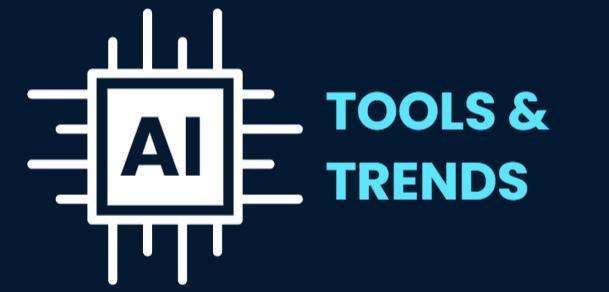
Artificial intelligence (AI) is a powerful tool that can be used for good or evil.
Unfortunately, in the hands of corrupt and authoritarian politicians, AI is becoming a weapon of mass oppression and manipulation.
In this article, we will explore how AI is influencing the politics and governance of nations, and why this is a serious threat to democracy and human rights.
AI and Political Propaganda
One of the ways that AI is influencing politics is by creating and spreading political propaganda.
AI can generate fake news, deepfakes, and bots that can influence public opinion and sway elections.
For example, in the 2020 US presidential election, researchers found that nearly 20% of the tweets about the election were generated by bots.
These bots were used to amplify misinformation, sow discord, and undermine trust in the democratic process.
AI can also create realistic and convincing deepfakes, which are videos or images that manipulate the appearance or voice of a person.
Deepfakes can be used to impersonate or defame political leaders, celebrities, or activists, and spread false or malicious messages.
For instance, in 2019, a Deepfake video of the former president of Nigeria, Good luck Jonathan, was circulated online, in which he appeared to endorse a rival candidate in the upcoming election.
The video was intended to confuse and deceive the voters, and damage the reputation of Jonathan.
AI and political propaganda are a dangerous combination, as they can erode the trust and confidence of the people in the information they receive, and the institutions they rely on.
Moreover, they can create social and political polarization, and incite violence and hatred among different groups.
AI and Political Surveillance
Another way that AI is influencing politics is by enabling and enhancing political surveillance.
AI can be used to monitor and track the activities, movements, and communications of citizens, dissidents, and opponents.
For example, in China, the government is using AI to implement a massive and intrusive surveillance system, known as the Social Credit System.
This system assigns a score to each citizen, based on their behavior and compliance with the government’s rules and norms.
The score can affect their access to public services, such as education, health care, travel, and employment.
The system also uses facial recognition, biometrics, and GPS to track and identify the citizens, and punish them for any perceived misconduct.
AI and political surveillance are a serious threat to democracy and human rights, as they can violate the privacy and dignity of the people, and suppress their freedom of expression, association, and assembly.
Furthermore, they can create a climate of fear and intimidation, and deter the people from challenging or criticizing the government.
AI and Political Decision-Making
A third way that AI is influencing politics is by influencing and replacing political decision-making.
AI can be used to analyze and process large amounts of data, and provide insights and recommendations for policy-making and governance.
For example, in Estonia, the government is using AI to improve the efficiency and transparency of its public services, such as tax collection, health care, and education.
The government also plans to use AI to create a virtual assistant, known as Kratt, that can advise and assist the ministers and officials in their daily tasks.
However, AI and political decision-making are not always a positive and beneficial partnership.
AI can also be used to manipulate and bias the outcomes of political decisions, and undermine the accountability and legitimacy of the government.
For example, in the UK, the government used an AI algorithm to determine the grades of thousands of students, after the cancellation of exams due to the COVID-19 pandemic.
The algorithm was found to be unfair and inaccurate, as it downgraded the grades of many students, especially those from disadvantaged backgrounds.
The algorithm also lacked transparency and explainability, as the students and teachers were not informed of how it worked, or how they could appeal the results.
AI and political decision-making are a complex and controversial issue, as they can raise ethical and moral questions, such as who is responsible for the decisions, how are the decisions made, and what are the impacts and consequences of the decisions.
Conclusion
AI is influencing the politics and governance of nations, in both positive and negative ways.
AI can be used to improve the quality and efficiency of public services, and enhance the participation and engagement of the people.
However, AI can also be used to create and spread political propaganda, enable and enhance political surveillance, and influence and replace political decision-making.
These uses of AI can pose a serious threat to democracy and human rights, as they can undermine the trust, confidence, and freedom of the people, and the accountability and legitimacy of the government.
Therefore, it is crucial to ensure that AI is used in a responsible and ethical manner, and that the people have a say and a stake in how AI is influencing their politics and governance.
RELATED ARTICLES
- The best AI software and hardware for building and testing AI systems
- The best AI skills and competencies for the future of work
- The Best AI Projects, Challenges and Competitions in 2024
- The best AI methods and models for natural language processing and generation
- How AI is enhancing the creativity and innovation of artists and designers










вызов такси в новочеркасске https://zakaz-taxionline.ru/
южный парк онлайн https://southpark-serial.ru
оптимизация сайта seo https://seo-prodvizhenye-kazan.ru
Nice post.Very useful info specifically the last part 🙂 Thank you and good luck.
Портал о здоровье https://www.rezus.ru и здоровом образе жизни, рекомендации врачей и полезные сервисы. Простые рекомендации для укрепления здоровья и повышения качества жизни.
The sketch is tasteful, your authored material stylish.
Yassine Bounou https://yassine-bounou.prostoprosport-ar.com also known as Bono, is a Moroccan footballer who plays as a goalkeeper for the Saudi Arabian club Al-Hilal and the Moroccan national team. On November 10, 2022, he was included in the official application of the Moroccan national team to participate in the matches of the 2022 World Cup in Qatar
Luka Modric https://lukamodric.prostoprosport-ar.com is a Croatian footballer, central midfielder and captain of the Spanish club Real Madrid, captain of the Croatian national team. Recognized as one of the best midfielders of our time. Knight of the Order of Prince Branimir. Record holder of the Croatian national team for the number of matches played.
Karim Mostafa Benzema https://karim-benzema.prostoprosport-fr.com French footballer, striker for the Saudi club Al-Ittihad . He played for the French national team, for which he played 97 matches and scored 37 goals.
Thibaut Nicolas Marc Courtois https://thhibaut-courtois.prostoprosport-fr.com Footballeur belge, gardien de but du club espagnol du Real Madrid . Lors de la saison 2010/11, il a ete reconnu comme le meilleur gardien de la Pro League belge, ainsi que comme joueur de l’annee pour Genk. Triple vainqueur du Trophee Ricardo Zamora
Victor James Osimhen https://victor-osimhen.prostoprosport-br.com e um futebolista nigeriano que atua como atacante. O clube italiano Napoli e a selecao nigeriana.
Antoine Griezmann https://antoine-griezmann.prostoprosport-cz.org Francouzsky fotbalista, utocnik a zaloznik za Atletico de Madrid. Hrac a vicekapitan francouzskeho narodniho tymu, clen tymu – mistr sveta 2018 Stribrny medailista z mistrovstvi Evropy 2016 a mistrovstvi sveta 2022.